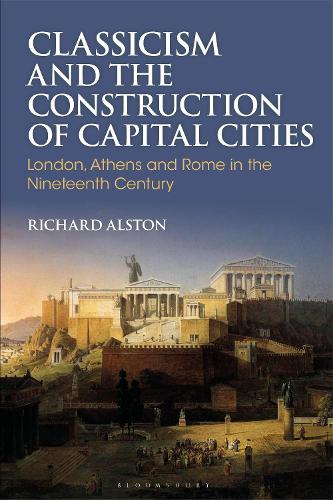
Classicism and the Construction of Capital Cities: London, Athens and Rome in the Nineteenth Century
(Hardback)
Publishing Details
Classicism and the Construction of Capital Cities: London, Athens and Rome in the Nineteenth Century
By (Author) Richard Alston
Bloomsbury Publishing PLC
Bloomsbury Academic
12th June 2025
United Kingdom
Classifications
Professional and Scholarly
Non Fiction
European history
Physical Properties
Hardback
240
Width 156mm, Height 234mm
Description
Exploring the intriguing interplay between tradition and modernity in the 19th-century capitals of London, Athens and Rome, Richard Alston delves into the political decisions and architectural choices that shaped these cities as self-consciously modern nations. Despite breaking with traditions and embracing new values, politicians and architects strategically incorporated classical styles to address issues of city and nation values, citizenship and belonging. Classicism's appeal to authoritarian politics and its subsequent transformations under nationalism offer a compelling narrative of utopian dreams clashing with the complexities of the modern urban landscape. Through a series of case studies, this book illuminates how classicism became a potent tool for expressing elitist nationalism in London, excluding many Greeks from their own state in Athens, and unifying a technocratic Rome. As the grand visions of these capitals collided with the realities of the modern city, Richard Alston unravels the mythic allure and ultimate failure of these architectural endeavours. This book presents a riveting exploration of the classical architectural choices that reflected the aspirations and challenges of a rapidly changing world, leaving a lasting impact on the capitals and the nations they represented.
Author Bio
Richard Alston is Professor of Roman History at Royal Holloway University of London, UK. He is the author of The City in Roman and Byzantine Egypt (2001) and has published on classical reception in articles and edited collections focusing on urbanism and political theory.
